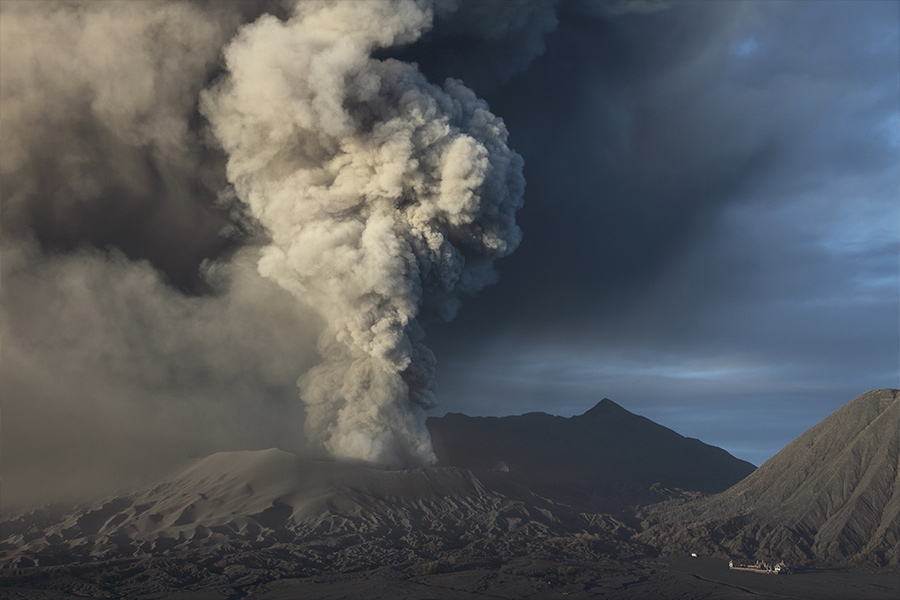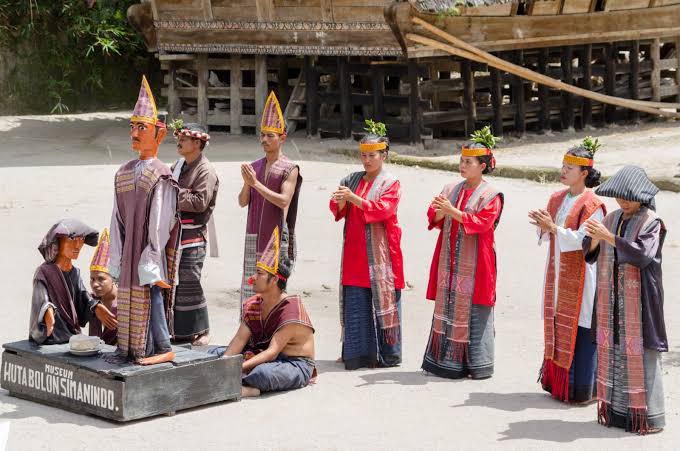Lake Toba, located in North Sumatra Province of Indonesia is one of the most beautiful landscape in all of the Indonesian archipelago. It’s also the biggest caldera lake in the whole world, and the largest lake in Southeast Asia, covering an area of 1,707 km2 which is bigger than Singapore. While Lake Toba is gorgeous, it was the result of a devastating disaster that almost drove the human species to extinction.
Toba Supervolcano

What a lot of people don’t know is, on the spot that is now Lake Toba, once stood a magnificent volcano called Mount Toba. Around 75,000 years ago, during the Paleolithic era, Mount Toba erupted and expelled an astonishing 2,800 cubic km amount of volcanic ash and lava. It was argued by many volcanologists as the largest volcanic eruption in all history of humankind, hence the term ‘Supervolcano’.
The amount of ash was so massive, it caused a volcanic winter that lasted at least a full decade. The ash-fall of Toba Supervolcano covered an area of more than 38,000,000 km2 including Straits of Malacca, Indian subcontinent, South China Sea, Arabian Sea, and even Sub-Saharan Africa. The microscopic glass shards from Toba could be found in South China, South Africa, Ethiopia and Malawi.
Almost Wiped Out Humanity

During at least a decade of volcanic winter, the worldwide temperatures dropped up to 10o Celsius. This drastic change of climate and temperatures decimated most human populations, especially those who lived in the tropical area since they wouldn’t have known how to survive a cold weather, unlike those who were living in Europe, North America, or East Asia.
But even so, the volcanic winter not only made the world temperatures plunged, but also blocking the sunlight from reaching the Earth. Because of that, it was extremely hard to grow crops around the world and therefore add the number of casualties caused by famine. It was estimated that after the volcanic winter ended, there were only a few thousands of humans left on the entire planet.
The Slow Birth of Lake Toba and Samosir Island

The eruption of Mount Toba was so huge, that it destroyed the mountain itself, leaving a huge caldera and water slowly filled the caldera resulted in the world’s biggest volcanic lake. Over time, life blossomed in Lake Toba with the emergence of life like a type of fish that can only be found in Toba Lake which is called Ikan Batak or Neolissochilus thienemanni. Humans also started to thrive near Lake Toba with the emergence of the Batak Toba Tribe.
Due to the continuous volcanic activities thousands of years after the eruption, an island also formed very slowly right in the center of Toba Lake which is called the Samosir island which is the fifth largest lake island in the world. On this island, one of Batak Toba’s clan called the Samosir clan which are the descendants of Toga Samosir, has been thriving for thousands of years.
A Gorgeous Spot That Needs Better Promotion

The scenery both on and around Lake Toba is stunningly beautiful, but unfortunately, this amazing lake is not worldly known and only popular among Indonesians. This is why the Indonesian Government has been pushing for better efforts to make Lake Toba more popular around the world and attract more foreign tourists by developing various related infrastructures.
In Lake Toba, you can do various interesting activities such as a simple hike to enjoy the astonishing view of the gorgeous lake, surrounded by green hills. If you want, you can also enjoy the water by kayaking in Lake Toba which many has said is a once-in-a-lifetime experience. You can also enjoy the newly-popular glamping or glamorous camping which is a new type of camping but without the hassles of conventional camping.
If you’re interested to go, then make sure you also go to Samosir island to see the famous Sigale-gale. Sigale-gale is really popular among tourists because this wooden puppet is shrouded in mystery and myths. Sigale-gale is known by locals can dance by its own when a death ritual is performed. It’s believed that the dance would be able to deliver the deceased spirit into a better place.



















